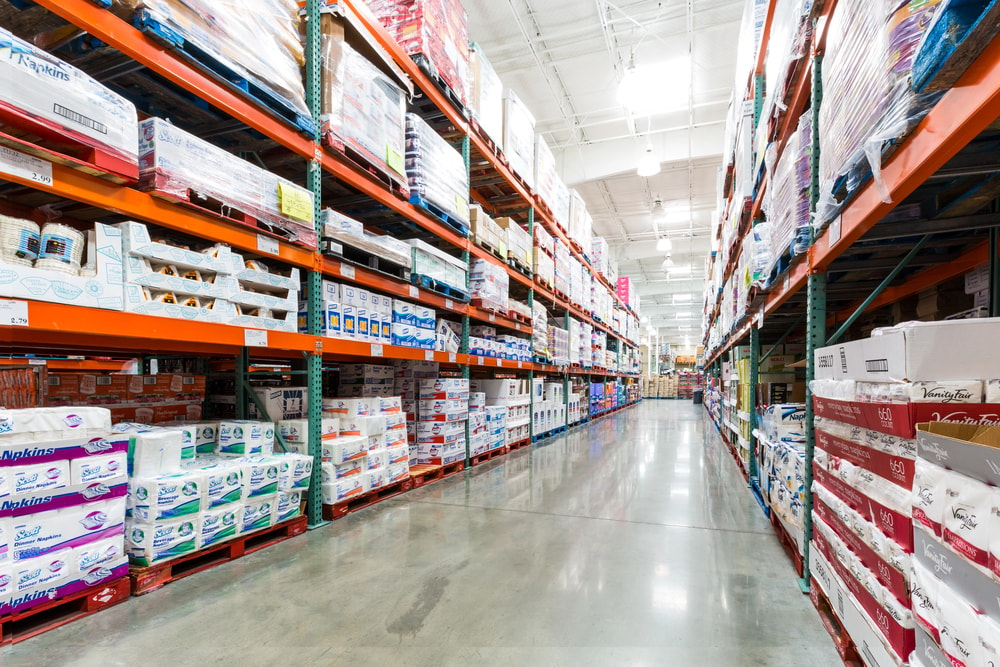Retail logistics has played a major role in bringing the product into the hands of customers and greatly contributes to the world’s economy. This ranges from managing inventory, including transportation and distribution, all the way to responding to the unique challenges of supply and demand within the retail world. In retail, market supply and customer demand can shift in an instant—whether due to trends, seasons, or changing consumer preferences. Retailers need a solid logistics plan to make sure products are always available, keeping customers happy.
Effective supply chain management sets successful retailers apart in today’s competitive landscape. By streamlining their supply chain, companies can better meet customer demand, avoid inventory stockouts and keep shorter delivery times. This leads to an enhanced customer experience that provides a competitive advantage in the market. With ShipEX Logistics, we know that a well-run supply chain can bring about its important points, which we are here to help the retailer work through.
Retail Supply Chains Basics
Retail supply chains cover the entire process of getting products from raw materials to customers’ hands. There are variations concerning direct-to-consumer, brick-and-mortar, and omnichannel supply chains, each having its operation system. For this reason, effective supply chain management has become a key factor in retailers remaining competitive. Supply chain partners, from manufacturers to delivery services, all play a role in products moving smoothly from one stage to the next.
Logistics data and inventory management also greatly impact how well retail supply chains run. By using logistics data, retailers can better track stock levels, forecast demand, and optimize their supply chain processes to avoid costly issues like stockouts or overstocking. Working closely with supply chain partners and having good inventory management in place helps the entire journey—from raw materials to customer delivery—run smoothly and keeps customers satisfied.

Unique Challenges in Retail Supply and Demand
In retail, seasonal demand changes create challenges for businesses as they try to keep up with customer needs. Effective demand forecasting is important in managing these shifts, making sure that the market supply aligns with customer demand during busy seasons. When done right, it prevents both overstocking and shortages, helping retailers stay competitive while keeping customers satisfied.
Today’s supply chains rely heavily on predictive analytics to get ahead of future trends and better meet consumer expectations. Data-driven insights will further allow businesses to fine-tune their supply chain performance toward a supply chain optimization approach, thus being better prepared for quicker adaptation to changes in the market. This distinctive combination of smart forecasting and technology empowers companies with greater efficiency and responsiveness to outpace the competition in a fast-moving retail environment.
Leveraging Data in Retail Supply Chain Management
Using supply chain data can help businesses succeed. Modern supply chain analytics allow companies to dive into raw, structured, and unstructured data, helping them make better decisions. With these tools, retailers can find weak spots in their operations and make adjustments that keep things running smoothly.
Real-time visibility is a game-changer for retail logistics. By tracking shipments and monitoring inventory in real-time, businesses can spot potential problems early and take action to avoid delays. This kind of transparency helps companies like ShipEX Logistics stay on top of deliveries and reduce operational costs, providing a more reliable supply chain.
Supply chain analytics tools are helping businesses improve their operations by giving them deeper insights into their data. Whether it’s looking at order history or analyzing customer feedback, these tools help companies cut costs and make data-driven decisions that benefit the entire supply chain. With a better understanding of demand and inventory management, retailers can create a more effective, streamlined approach to their logistics.

Enhancing Retail Supply Chains with Advanced Technologies
At ShipEX Logistics, we see how advanced technologies are changing the game for retail supply chains. These tools help predict future outcomes and spot inefficiencies, allowing businesses to tackle problems before they escalate. Cognitive analytics and process automation also bring a lot of value by improving accuracy and speeding up operations, making the supply chain run more smoothly without as much manual effort.
As retail supply chains continue to advance, data engineers are becoming more important than ever. By analyzing customer data, they help businesses manage inventory more effectively and keep up with shifting demand. Self-learning and cognitively enabled systems are also pushing digital transformation forward, giving supply chains the ability to adapt in real-time and make smarter, data-driven decisions. These technologies help retail companies stay competitive.
The Competitive Advantage of Efficient Retail Logistics
At ShipEX Logistics, we know that understanding customer demand and using supply chain analytics tools can give retailers a strong edge. By analyzing data, businesses can gain valuable insights into what their customers want and respond to those needs faster. Predictive and prescriptive analytics help companies forecast demand and plan their inventory, making sure they are always ready to meet customer expectations and stay ahead.
Retailers like Amazon and Walmart have set the standard for demand planning by using descriptive, predictive, and prescriptive analytics. These tools allow them to predict customer behavior and adjust their inventory accordingly. By using advanced analytics in this way, they can avoid running out of stock, keep products flowing smoothly, and ultimately boost customer satisfaction by having what people want, when they want it.
Beyond improving customer satisfaction, advanced analytics also help businesses cut operational costs. By tapping into supply chain data, companies can identify weak spots and find ways to improve how they operate. This kind of data-driven decision-making allows retailers to improve their processes, reduce waste, and better their overall performance. At ShipEX Logistics, we believe that smart use of analytics is essential for staying competitive and providing top-tier service.

Future Trends in Retail Supply Chains
At ShipEX Logistics, we see retail supply chains evolving through the use of predictive analytics, enterprise resource planning (ERP), and actionable insights. With diagnostic analytics and cognitive tools, retailers can forecast future demand more accurately, helping them stay ahead of changes in the market. These data-driven insights allow businesses to make smarter, real-time decisions that improve supply chain operations and enhance customer experiences.
As supply chains become more interconnected, the use of external systems will become more important, allowing data to flow seamlessly across the entire network. Real-time data will help businesses strengthen their distribution networks and uncover new opportunities for cost savings. By embracing these emerging trends, retailers will be better equipped to manage their supply chains and make informed, data-driven decisions. At ShipEX Logistics, we’re excited about the future of retail logistics and the role these advancements will play in driving success.
Optimizing Retail Supply Chains for the Future
Modern supply chains and thoughtful supply chain optimization are important to driving success in retail logistics. By making data-driven decisions and focusing on improving operational efficiency, retailers can better manage their logistics and stay competitive in an ever-evolving market. With the help of powerful tools like predictive analytics and enterprise resource planning (ERP), businesses can fine-tune their supply chains and adapt to changing customer demand.
As we look to the future, continuous improvement will be the backbone of meeting new challenges in retail supply chains. Technology will keep advancing, and the ability to refine and adapt processes will help companies stay agile and responsive to customer needs. At ShipEX, we believe that embracing these advancements and staying committed to innovation will be the key to long-term success in retail logistics.




